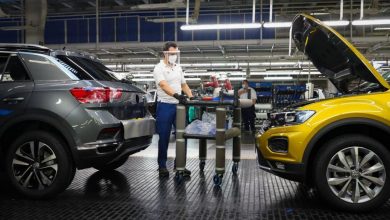
How is blockchain transforming the automotive industry?
The automotive industry is getting a large scale upgrade with blockchain technology.
Over the past few years, many automakers have started to explore the potential of blockchain technology to improve the mobility of the future.
Why has Daimler launched a crypto car wallet?
Blockchain is set to accelerate the automotive industry in developing next-gen vehicles and enhancing the driving experience, the same way disruptive technologies like artificial intelligence (AI), machine learning (ML), high-performing sensors, and location systems did.
The unique features of blockchain to provide more secure and traceable transactions, as well as better access and transparency to information, will promote trust and collaboration among businesses, consumers, and vehicles.
In this regard, stakeholders of the industry are increasingly keen on boarding the blockchain revolution. A study by IBM reported that 62 percent of automotive executives believe blockchain will be a disruptive force in the automobile sector by 2021. At the same time, 54 percent of Auto Pioneers will implement their first commercial blockchain network at scale within the next three years.
A roundtable for blockchain enthusiasts
The launch of MOBI (Mobility Open Blockchain Initiative) in 2018 is likely the most apparent manifestation of the expanding blockchain revolution. Global automakers such as BMW, General Motors, Ford, and Renaults were among the members in collaboration with leading blockchain and technology startups. The dynamic club also includes researchers and scientists from academic institutions and NGOs.
MOBI’s initial projects focus on developing secure mobility commerce; for instance, a usage-based mobility pricing that sets prices according to vehicle conditions and usage. With the organization gathering top talents and brains, the automotive industry is adamant in laying a strong foundation for mobility solutions of the future.
“The auto industry is in a position that it needs to gain efficiencies right now, with its promise of making mobility safer, greener, and more accessible, blockchain has the potential to strengthen trust and collaboration among businesses, consumers and even vehicles,” said Chris Ballinger, CEO and Founder at MOBI.
The uses of blockchain in an automotive world
Some of the ways blockchain is transforming the automotive industry is by streamlining the supply chain management. The supply chain includes the delivery of raw materials and end products that would eventually be part of the vehicles. But the journey doesn’t end here, as blockchain has the potential to trace and monitor conditions of car parts at consumers’ end.
For instance, BMW plans to pilot blockchain-based projects that will help track and document the movement of raw materials and spare parts from across countries. Since international deliveries are prone to hurdles or manipulation, blockchain will provide an added layer of safety and transparency for valuable parts.
In another case, Daimler launched a Crypto Car Wallet to make transactions easier and at the same time, enhance fleet management. The “wallet” resembles a black box that can be easily stored in the car and it records the vehicle’s performance, such as mileage, fuel consumption, and parts’ wear. This information will help automakers carry out proper maintenance whereby the duration and extent of damages on parts are detailed in the hardware.
The data can be transferred to insurance companies and all processes that require manual data insertion (transaction costs and details) could be streamlined. Blockchain has the potential to accelerate these processes and keep the records updated throughout the car’s lifecycle.
In terms of security, blockchain can account for the safety of vehicles in both the physical and digital worlds. Take a car rental company as an example; blockchain enables the rental company to monitor if the cars are cleaned and well maintained. It would also help companies decide whether a vehicle is worth the investment based on information on its conditions stored in the digital ledger.
In the same vein, blockchain’s robust cryptographic system will prevent participants from successfully modifying or altering any information once it has been produced. Bad actors who attempted to do so would leave a digital trail behind.
The automotive industry has a vast amount to gain from blockchain as the technology offers multiple directions for development in bolstering the supply chain, safety and security of vehicles, and car services.
Many aspects of the automotive industry are changing and have experienced some form of upgrade. Thus, automakers are buckled up for a long road ahead with disruptions from blockchain technology.
Font: Techhq





